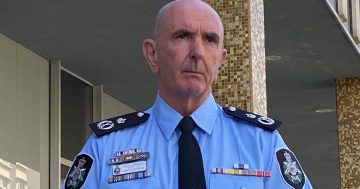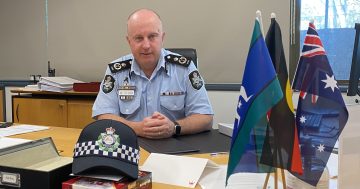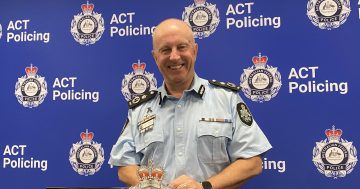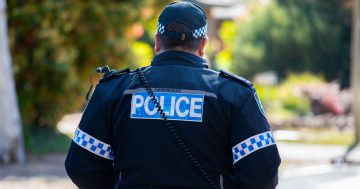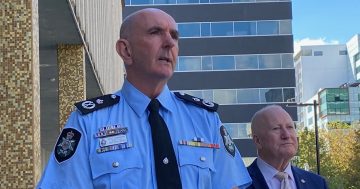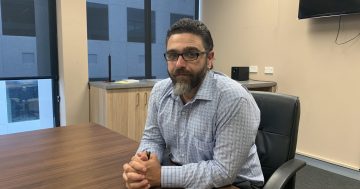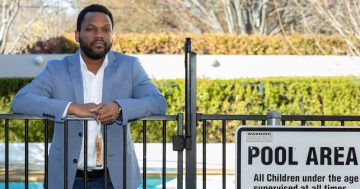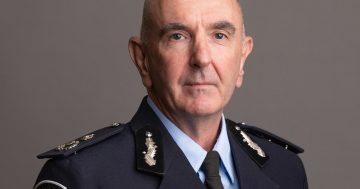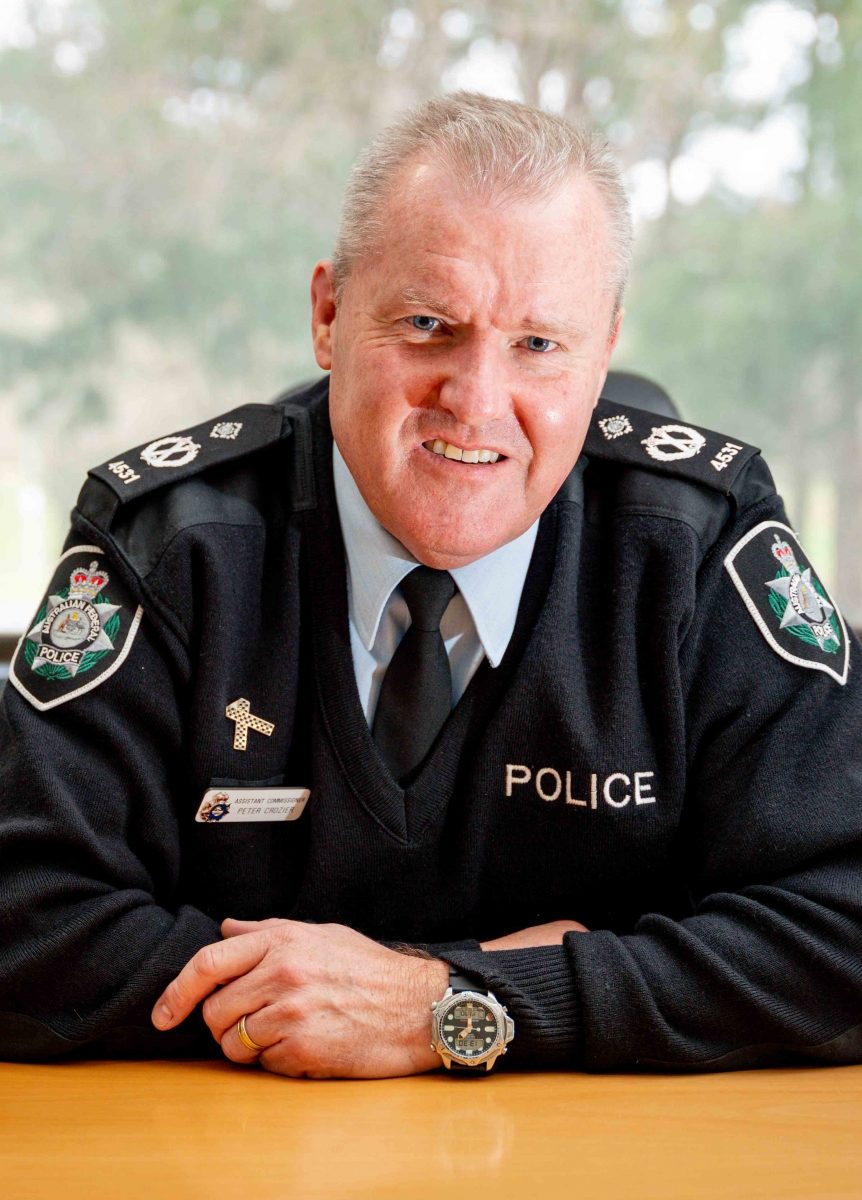
Deputy Chief Police Officer Peter Crozier. Photo: ACT Policing.
Peter Crozier ended up with the Australian Federal Police (AFP) by complete accident.
“I thought I was joining the police force in Canberra, only to be told I’d be heading to Sydney,” he says.
“I remember my mother’s face when she found out. I’m not sure if she was worried about me being in Sydney or that I’d have to look after myself.”
The born-and-bred Canberran was promoted to Deputy Chief Police Officer (DCPO) of ACT Policing almost one year ago and is now coming up on 35 years in the force.
DCPO Crozier’s time with the AFP has been vast and varied, from a sergeant in Tuggeranong to assisting investigations into the Bali bombing and the downing of flight MH-17.
But he credits his time as a police negotiator as the place where he honed his skills for communication and building relationships.
“I’m not incredibly good at driving a car or shooting a gun, but there’s more to policing than those roles,” DCPO Crozier says.
“The capacity to communicate is important, and I was quite a good negotiator. There are a lot of challenging roles in that space.
“People think negotiating is about building trust, but trust is hard to build in a short space of time. You want to resolve the situation as soon as possible.”
He says another key skill is empathy, which he developed while working on missing children’s cases.
“It might be routine work [for an officer], but for that family, it’s the worst day of their life. Whenever my kids would leave my side, I would think ‘that’s the torment some people go through’. I’d bring that to my mind,” he says.
“So you have to be aware of how you treat families, with humility, empathy and common decency … that’s how I got an understanding of why we do what we do.”
DCPO Crozier says he is focused on producing the best officers and leaders he can for the Canberra community.
“One of my key concerns is how we best deliver the policing service the community expects,” he says.
“We’ve gone from police as a warrior to police as a guardian. This change hasn’t happened overnight.”
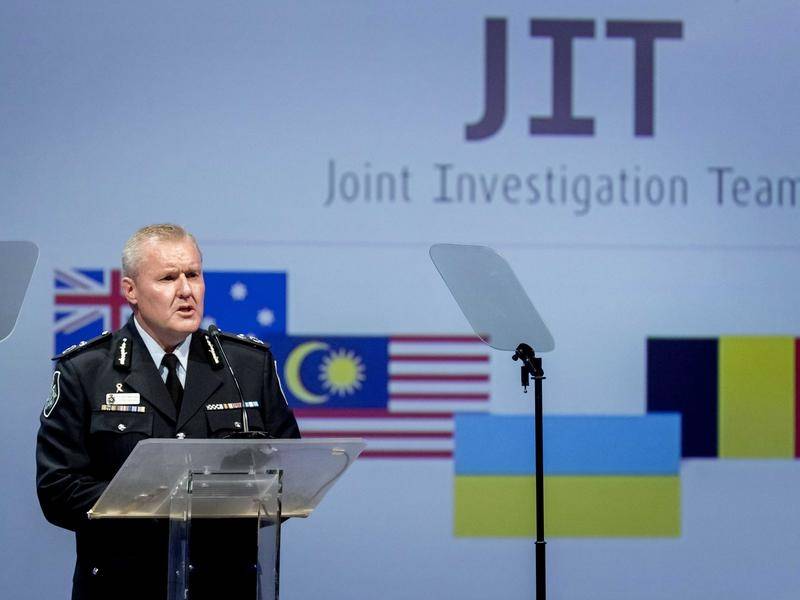
DCPO Crozier continues to lead the AFP’s teams investigating the downing of Malaysia Airlines flight MH-17 over Ukraine in July 2014. Photo: ACT Policing.
One aspect of meeting community expectations is ensuring officers are fully prepared for what they can encounter from day one on the job.
“Some of the most critical decisions an officer can make may be in their first couple of days of work. I want to make sure they’re best equipped to do that with a system that will support them in the longer term.
“[When interacting with a victim, witness or offender] you’ve got to think about the impact you’ll have if your response is positive.
“What that looks like and what impression they receive of the police force will impact the types of interactions you have in the future.”
He says the community also expects police to be honest, and officers need to understand that.
“[The community] will make the decision on whether we’re doing a good job or not.
“I say to [officers] these are what our values are. If they’re not your values, this might not be the place for you.
“You’ve got to keep your words digestible, because at some stage you may need to eat them.”
DCPO Crozier acknowledges police make “very rare” mistakes – sometimes deliberate and sometimes down to circumstances.
But he’s always working for the force to be as “good as we can be”.
“I have a bit of a personal philosophy: don’t be a d*ckhead,” he says.
“If you are, surround yourself with people who tell you that you are, and stop it.
“We are here to serve. But with that I do ask people to give us a level of respect, integrity, and work with us for the best interests of the community.”












